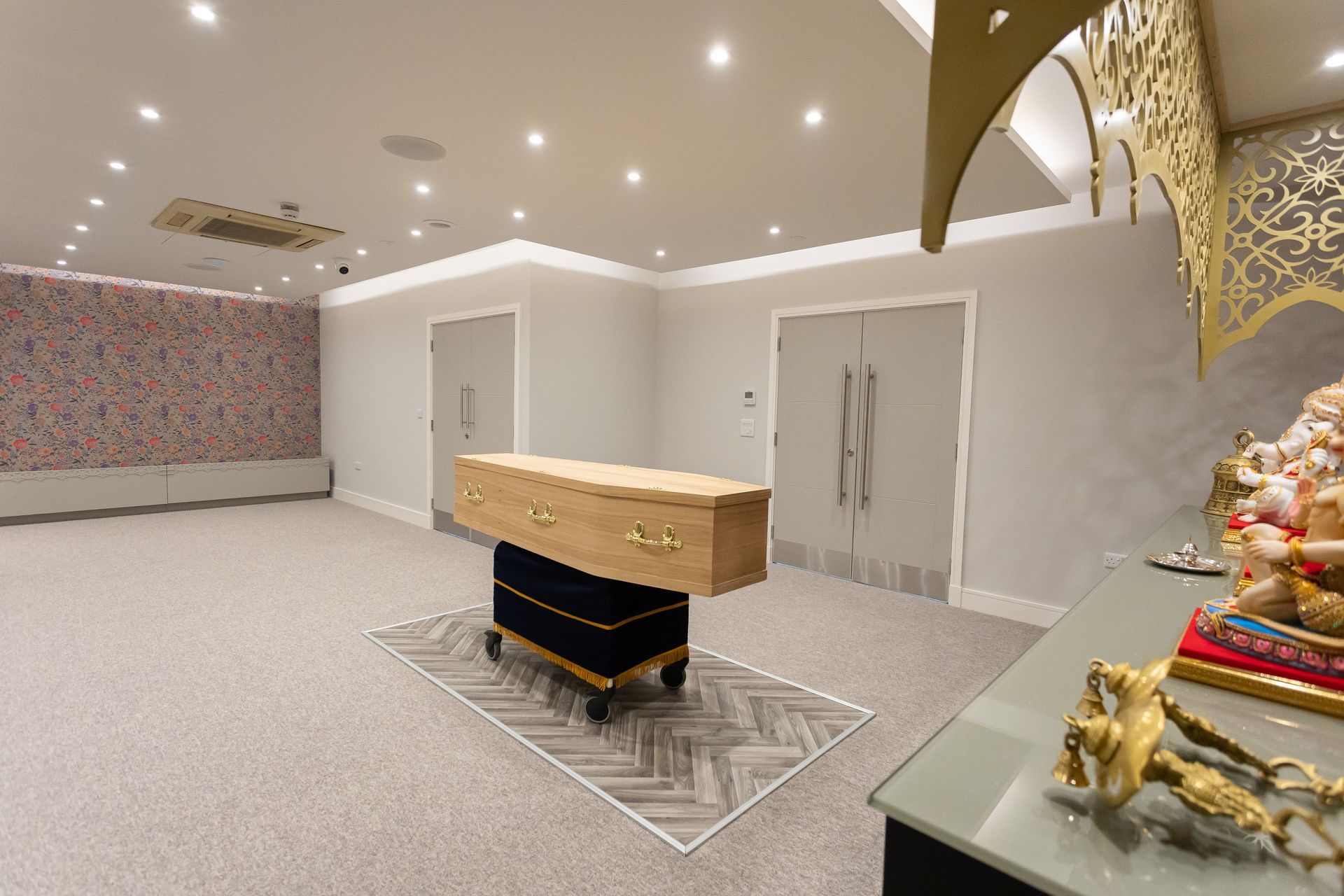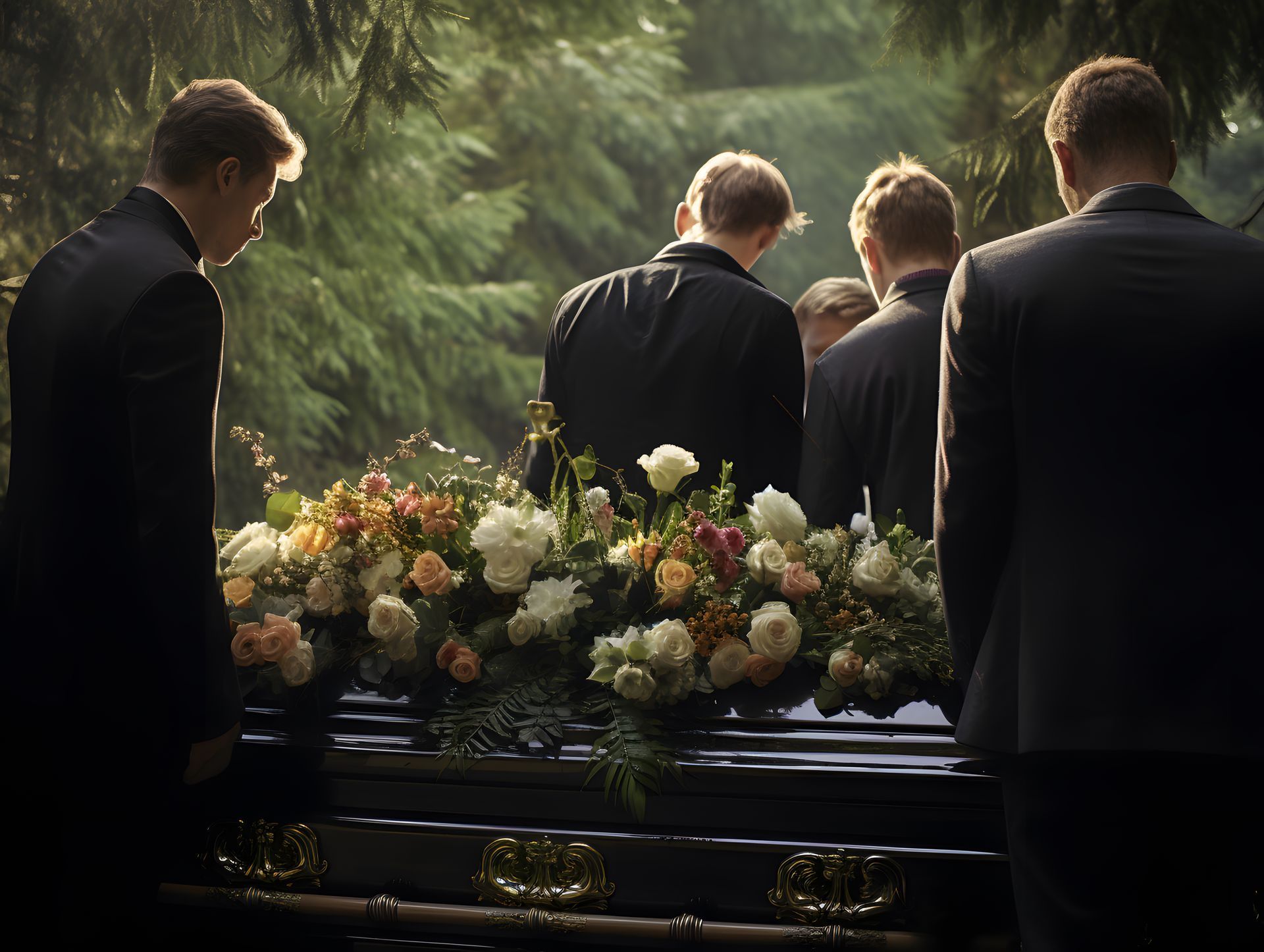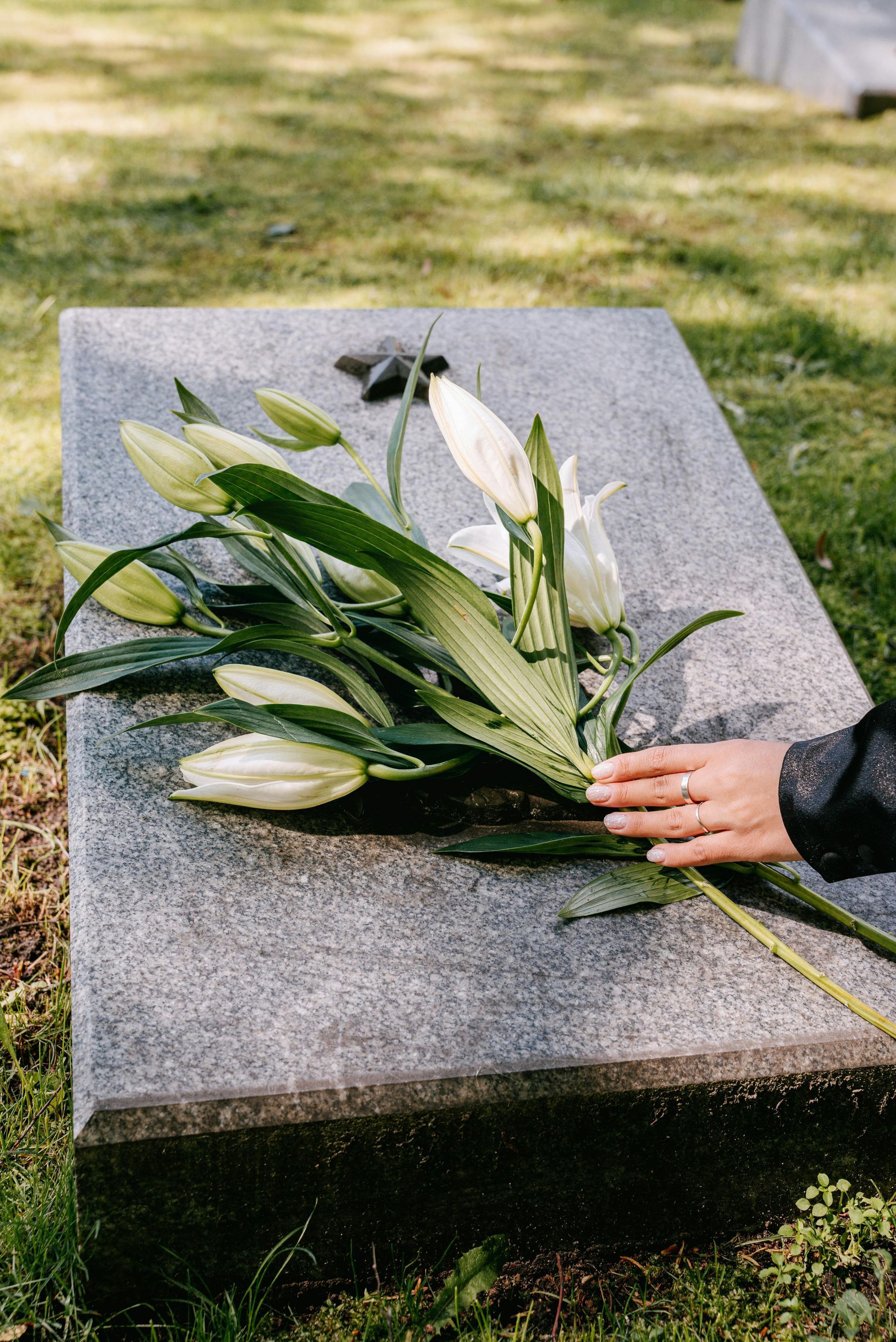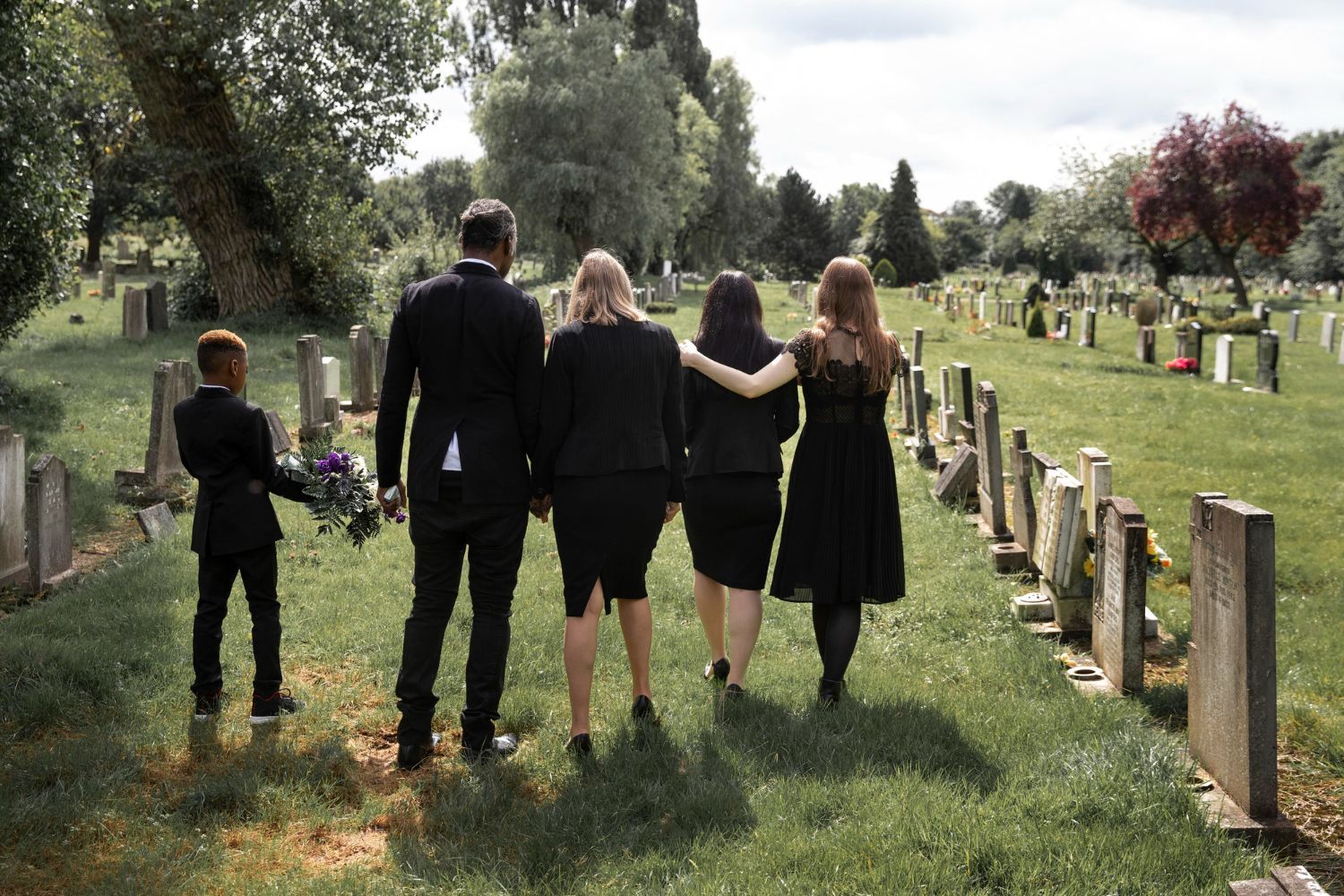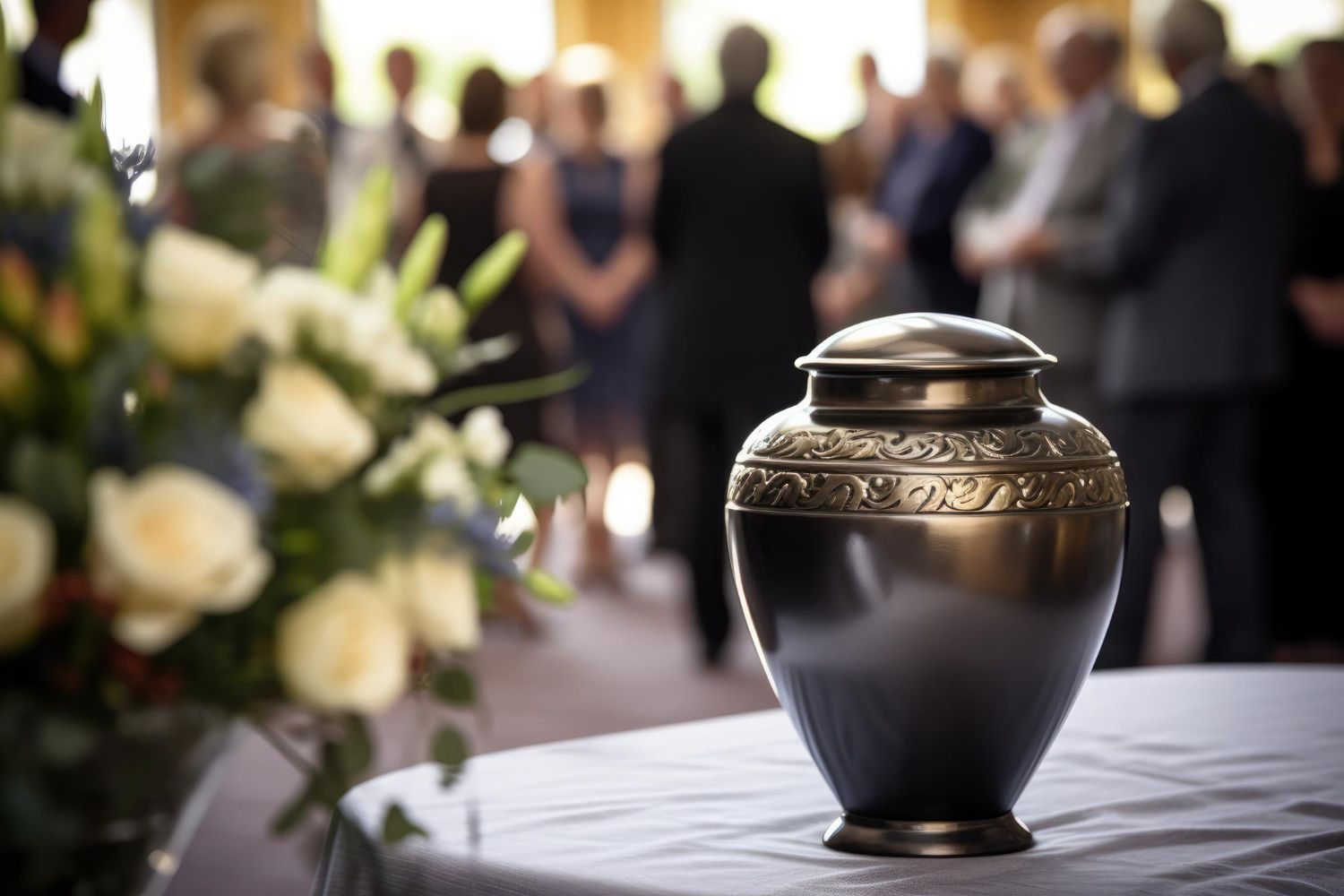How to arrange a funeral
Planning a funeral is a very personal process. In this guide, we share advice on arranging a funeral that feels right for you.
How do you arrange a funeral?
Planning a funeral is rarely easy. It involves lots of personal and often difficult decisions at a time when emotions are running high.
We understand. That's why we've put together this guide on how to plan a funeral. We show you what to consider, the steps you need to take, and how to get the help you need.
Making funeral arrangements is just one thing we must do when we lose a loved one. Learn more about
what you need to do when someone dies.
Steps for planning a funeral
Decide what you want for the funeral
At this stage, you don't have to worry about the finer details. However, it's worth thinking broadly about the kind of funeral you want so it's easier to make decisions as you go.
You might want to start by considering what the person who died would have wanted for their funeral (their 'last wishes'). They might have told you about their wishes in person – or they may have written them down in their will or a letter.
This can be a good way to start shaping your ideas for the funeral. However, there's no law that says you have to follow the person's last wishes – even if they wrote them in a will. What's important is that you honour your loved one in a way that feels right for you and your family.
Here are some questions you might want to ask yourself:
- Did the person who died want a burial or cremation?
- If they wanted a burial, did they have a burial ground or cemetery in mind? Was it important to them that they're buried close to home? Did they want a natural burial?
- If they wanted a cremation, did they say what they wanted to happen to their ashes? You have several options, including scattering them, burying them in a garden of rest and keeping them at home in an urn.
- Did they want a funeral service? If not, you could consider direct cremation or direct burial. These are 'no-fuss' funeral options that don't include a funeral ceremony.
- Did they want a religious or non-religious service?
- Are there any special requests from relatives or friends I need to think about?
Work out how you'll pay for the funeral
In 2024, the average cost of a simple funeral in the UK was £4,285 (SunLife). However, the total cost depends on several factors, including:
- Which funeral director you choose: each funeral home sets its own prices.
- The kind of funeral you want: burials, for example, are usually more expensive than
- cremations.
- Where the funeral takes place: costs vary from place to place. In London, for instance, the average cost is £5,500, compared to £4,000 in southwest England (Farewill).
- Your choice of optional extras: these include things like floral arrangements, transport for the family and headstones.
There are different ways to cover this cost. Sometimes, the family pays for the funeral out of their own pockets. Other times, the family pays for the funeral and then recovers the cost from the estate of the person who died. The estate is the sum of their money and belongings.
Another possibility is that the person had a pre-paid funeral plan. In this case, the cost of the funeral is covered. With funeral plans, you typically have to use the funeral home that offered the plan.
You may be able to get help paying for the funeral through government schemes like the
Funeral Expenses Payment.
Choose a funeral director
Most people ask a funeral director to help them arrange the funeral.
Bear in mind that this is optional. You're free to make all the arrangements yourself if you prefer. However, it's worth considering working with a funeral director because they can help you with some of the finer details of funeral planning. Dealing with all these details without expert help can be very stressful.
It's up to you which funeral director you choose – and you're free to change your mind later. Many people choose one based on recommendations from friends and family. Others prefer to look around and compare services, prices and reviews.
Here are some questions you might want to ask your funeral director:
What services do you offer?
What's included in your costs?
How can I personalise the funeral?
How will you look after the person who has died?
Can I choose a date, time and venue for the funeral?
Can you help provide funeral transport?
Can I choose a coffin or urn (container for ashes)?
Consider your funeral options
Most funeral directors offer burial and cremation funerals. Many can also help with direct cremation and direct burial – simple, 'no-fuss' funerals without a formal ceremony.
However, these aren't your only options. For instance, you could consider natural burial – an eco-friendly option where the person who died is buried in a woodland or meadow.
It's also important to think about whether you want a religious or non-religious service. Religious services are usually held in places of worship (like a church or mosque) and follow a strict format. Non-religious funerals can take place anywhere and are often more flexible. It's up to your family to decide what's best in line with your beliefs.
Burial
After the funeral service, the person who died is buried in a burial ground or cemetery. There are extra costs associated with this, such as buying a burial plot.
Cremation
After the funeral service, the person's body is turned to ashes, which you can scatter, bury or keep at home. This option is usually more affordable than burial.
Direct cremation or burial
With these options, there is no funeral service. The person is buried or cremated without a ceremony. No friends or family can go to the crematorium.
Decide how to personalise the service
There are countless ways to personalise the funeral service. It's up to you how much you personalise it or whether you personalise it at all.
Some people are happy with a simple, no-fuss funeral. Others want something completely unique that reflects their loved one's personality and interests.
Your funeral director can help you make these decisions. Here are some things you might want to ask about:
Music
If your faith allows it, you can have all sorts of music at the funeral service. Usually, there are at least three opportunities to play music. These are at the start of the funeral, at the committal (when the person is put to rest) and when people leave the venue.
Readings
You could read a favourite poem or a passage from a book that sums up your feelings. If it's a religious funeral, you might want to read a verse from scripture.
Transport
Do you want a hearse for the funeral? What about limousines for the family? You might even want to consider hiring a horse-drawn carriage to carry your loved one's coffin.
Decorations
Depending on the venue and type of funeral you choose, you may be able to add decorations that reflect your loved one's interests and personality. Some people even choose unique coffins decorated in the style of a favourite hobby.
Choose a time and a venue for the funeral service
You can hold a funeral service almost anywhere. As long as you ask permission first, you can use any venue – whether that's a church, a hotel function room or an outdoor space.
Here are some common locations for funerals:
- Places of worship such as churches, mosques and gurdwaras
- Crematorium chapels
- Cemetery chapels
- At the person's grave – this is known as a 'graveside service'
- Outdoor venues such as parks and nature reserves
- Private venues like hotels, member's clubs and garden centres
- At the person's home or in their garden
When choosing a time for the funeral service, consider who's coming and how far they have to travel. It's often best to choose a time slot that's convenient for the largest number of people.
Invite people to the funeral
The traditional way to invite people to a funeral is to send invites by post. It's also customary to make an announcement in the local newspaper. Your funeral director can help you do this.
Nowadays, there are many more ways to let guests know about the funeral. You can call people by phone, send an email or create an
online dedication page with details of the funeral service.
Here's what to include in your invitation:
- The date, time and venue
- Whether you want people to bring flowers or donate to charity
- The dress code – if you have one
Other things to consider
Which coffin to choose
Do you want a special coffin for your loved one? There are many options available, ranging from traditional wooden coffins to eco-friendly options like wicker and cardboard coffins.
Whether to live-stream the funeral
It's becoming increasingly common to live-stream the funeral, meaning people can watch it from anywhere in the world. Is this something you'd like at the funeral you're planning?
Whether to have a wake
In some cultures, it's customary to hold a wake. This is a gathering that happens after the funeral, often with food and refreshments. You can hold a wake at home or hire a private venue.
What people should wear
Traditionally, people wear dark, smart clothes to funerals in the UK. But if your faith allows it, you can choose any dress code. If you want a celebratory mood, you could even ask people to wear bright colours or your loved one's favourite colour.
Common questions on how to arrange a funeral
Who can arrange a funeral?
If the person who died left a will, the executor takes responsibility for funeral arrangements. The executor is the person named in the will who deals with the person's estate (money and possessions) after they die.
If there is no will, the next of kin (spouse, partner, children or siblings) usually arranges the funeral. If the person who died had no close relatives, the responsibility may fall to a friend.
In cases where the person had no close friends or family, the local council will arrange and pay for a simple funeral.
Do you need a death certificate to arrange a funeral?
No, you don't need a death certificate to arrange a funeral. By law, however, you must register the death before you or your funeral director can start making funeral arrangements.
When you register the death, you receive a document called the 'certificate for burial or cremation'. This document is commonly known as 'the green form'. You must give this form to your funeral director before they can begin the steps for planning a funeral.
How long does it take to organise a funeral?
It varies depending on the kind of funeral you want and whether there are any religious considerations to keep in mind. Islamic funerals, for instance, usually take place within 24 hours, so the family must arrange a funeral very quickly. For a traditional UK funeral, it usually takes between one and two weeks to make arrangements.
More advice and support
Our 24-hour helpline
If you need our support, please call. Our lines are open 24 hours a day, 365 days a year.
Ideas and inspiration
The AFD blog has lots of ideas to help you personalise the funeral, including music, poems and readings.
Your funeral choices
Learn more about your options for the funeral, including burial, cremation and direct cremation.

